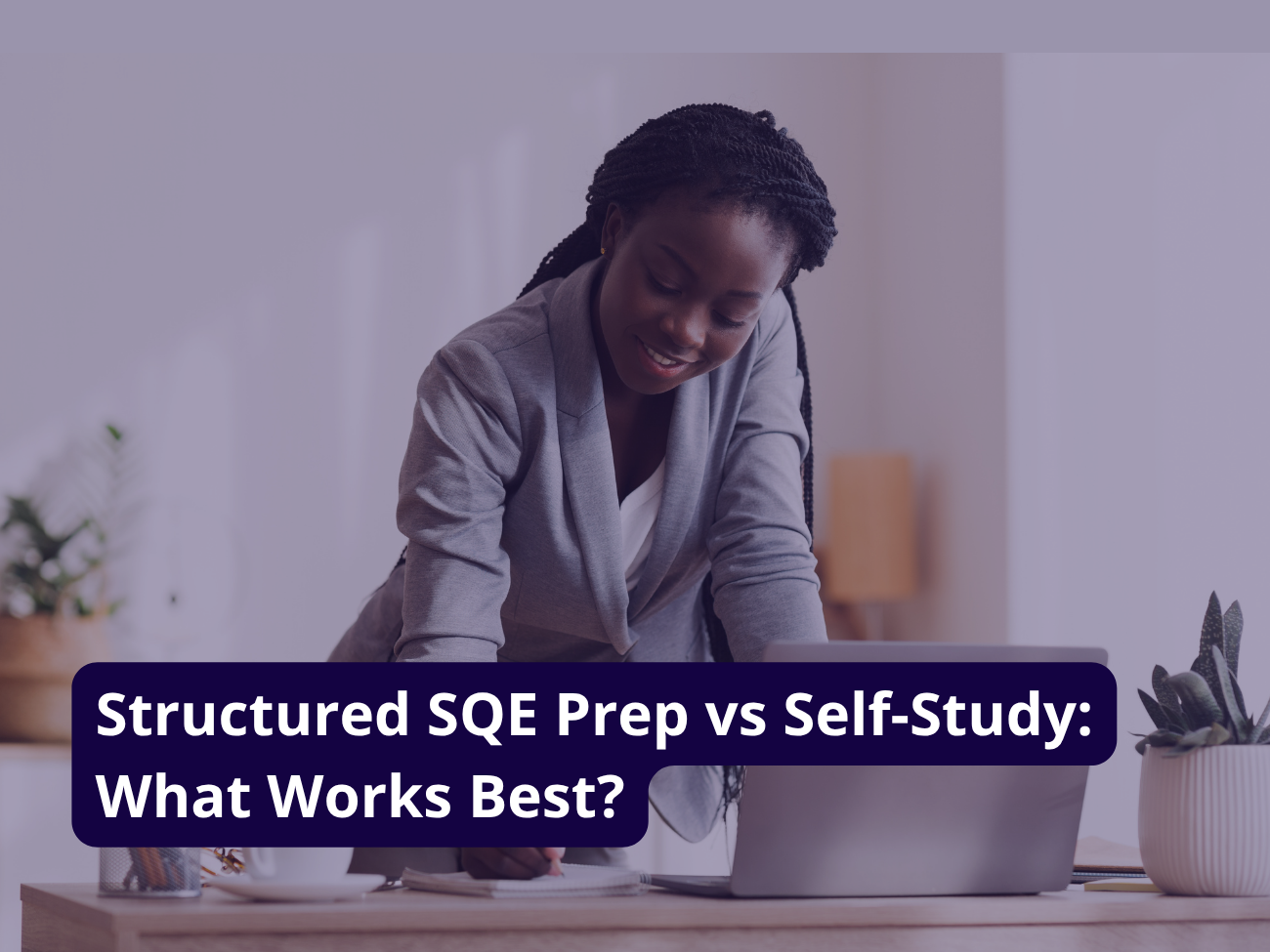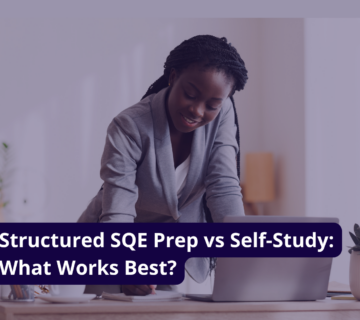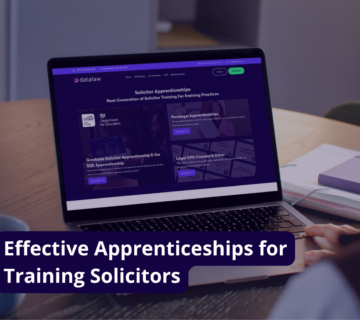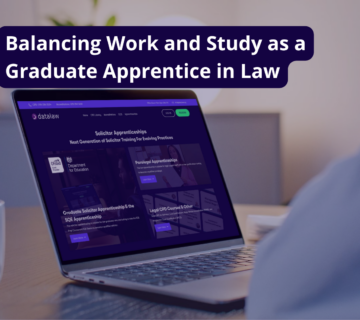As more aspiring solicitors explore their qualification options, the route to preparing for the Solicitors Qualifying Examination (SQE) has become a critical decision. While some choose to go it alone with self-funded courses and independent study, others are opting for a more structured path, through a solicitor apprenticeship.
This article explores the difference between the two approaches and highlights how Datalaw’s SQE prep support, through workshops, coaching, and built-in flexibility, is helping apprentices not only prepare but thrive.
Alyssia Sableski, a Graduate Solicitor Apprentice at Datalaw, shares first-hand how the apprenticeship model compares to what her peers are experiencing, and why structured support is so vital.
Two Paths, Two Very Different Experiences
Although all candidates sit the same exam, their journeys often look very different. For those studying alone, the path can feel overwhelming and isolating. Alyssia, however, has experienced something more supported.
“I have friends who are doing the SQE and they’re not getting as much support so they’re drowning under all the work and readings.”
This quote illustrates how tough it can be without structured support. The volume of material, combined with exam pressure, becomes hard to manage without guidance and routine.
The Impact of Structured Workshops
A major strength of the Datalaw apprenticeship is the regular, built-in workshop days. These sessions aren’t just lessons, they’re focused, hands-on SQE prep designed to build confidence through active practice.
“So the apprenticeship has helped me with the SQE, especially with workshops. They give us a lot of practice questions, which are the same format as the SQE.”
The use of SQE-style questions and real-time feedback transforms mistakes into opportunities to learn and grow.
“Every session we have four or five lots of practice questions that we do throughout the day. And I’d like to think I’m doing quite well on them. I’m getting quite a few answers right, but then when I do get an answer wrong, they do explain it really thoroughly to us.”
This balance of repetition and explanation is something that independent study often lacks. For Alyssia, it has noticeably boosted her confidence and understanding.
Support Beyond the Study Sessions
While workshops are essential, the support doesn’t stop there. Apprentices also benefit from one-to-one coaching that helps keep everything, from study plans to personal goals, on track.
“With having your one-to-one coach, it really helps keep you on track, so my coach Paige sets me deadlines of what we want to have done by our next meeting each month.”
This level of personalised guidance isn’t just helpful, it’s strategic. It ensures apprentices stay accountable, make steady progress, and always know what to focus on next.
A Manageable Work-Study Balance
One of the biggest challenges for aspiring solicitors is managing full-time work alongside SQE prep. Without a clear structure, many fall behind. However, Alyssia finds the apprenticeship’s schedule both flexible and practical.
“I found balancing the apprenticeship and work fairly easy… my work does give me three days off to do my workshops.”
This arrangement gives her time to prepare in advance, engage fully during sessions, and avoid burnout.
A Route That Builds Confidence
What truly sets the apprenticeship route apart is how supported apprentices feel. As Alyssia moves closer to the SQE, her mindset reflects preparation and calm, not panic.
“Compared to my friends who are doing it with different courses, a lot of them are really struggling with how underwater they are… and I’m over here with Datalaw, and I’m in a really comfortable position…”
That sense of comfort is no accident. It comes from regular coaching, structured prep, and a community that understands the journey.
The Risk of Going It Alone
Although independent study can seem flexible, it comes with real risks. Without feedback or structure, it’s easy to underestimate progress or leave things too late. With limited attempts to pass the SQE, the consequences are serious.
“I won’t be doing the SQE unless I’m fully prepared to do it… I’ve heard a lot of people pass with apprenticeships rather than when they haven’t been given that support. You have people who are struggling to pass and then you get three tries and then you can’t do it for six years and I don’t want that to happen…”
Her experience shows why structured SQE prep isn’t just helpful, it’s essential for success and peace of mind.
Why Structured SQE Prep Matters
Alyssia’s story highlights that solicitor apprenticeships deliver more than content. They provide a framework that helps learners build momentum, track progress, and develop the skills to succeed, not just in exams, but in practice.
For those comparing self-study with the apprenticeship route, the key difference is support. With the right mix of guidance, structure, and accountability, preparing for the SQE becomes a steady, confident journey, not a scramble to survive.
Interested in a More Supported Route to Qualification?
Datalaw’s Graduate Solicitor Apprenticeship and Advanced Paralegal Apprenticeship (SQE route) combine expert-led SQE preparation, personalised one-to-one coaching, and hands-on legal experience. These programmes are designed to help you qualify with confidence, without the stress and overwhelm. Register your interest today to explore these pathways in more detail and receive tailored information to guide your next steps.
Discover more of our Legal Updates.



